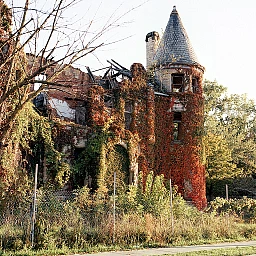Detroit, eternal rebirth of a pioneer city (Swiss Stories 2013, by Troesch Alex) - Swiss Press Award

Journal Le Temps
Troesch Alex
Report from Detroit in October 2012, where farms are being built on the remains of the city's ruins. Nature is reclaiming its rights, like the wild animals returning to the city. Synopsis: It didn't take the subprime crisis of 2008 for Detroit to learn to live with the recession. Motown has been living it for decades. Its beleaguered automobile industry is relocating, so much so that its population, estimated at nearly 2 million in 1950, fell to around 750,000 in 2010, leaving behind a host of abandoned houses that end up being destroyed or burned. The city center is scarred to the core, plots of land emptied of all human presence are gradually letting nature reclaim its rights. However, this situation attracts a number of young people with limited means who are settling there to create their own projects far from the realities of the housing stock of New York or Los Angeles. In Detroit today, it is possible to acquire a two-story family home for the modest sum of $5,000, just 10 minutes from the General Motors skyscrapers. Some are investing in abandoned land and transforming it into a real farm, growing all kinds of vegetables, most of which they sell at the city's covered market. We meet these urban farmers, whose movement continues to grow. We also meet a raccoon hunter; some wild animals are reappearing in the city. Glemie Dean Beasley is 72 years old and supplements his social security pension by hunting raccoons.
